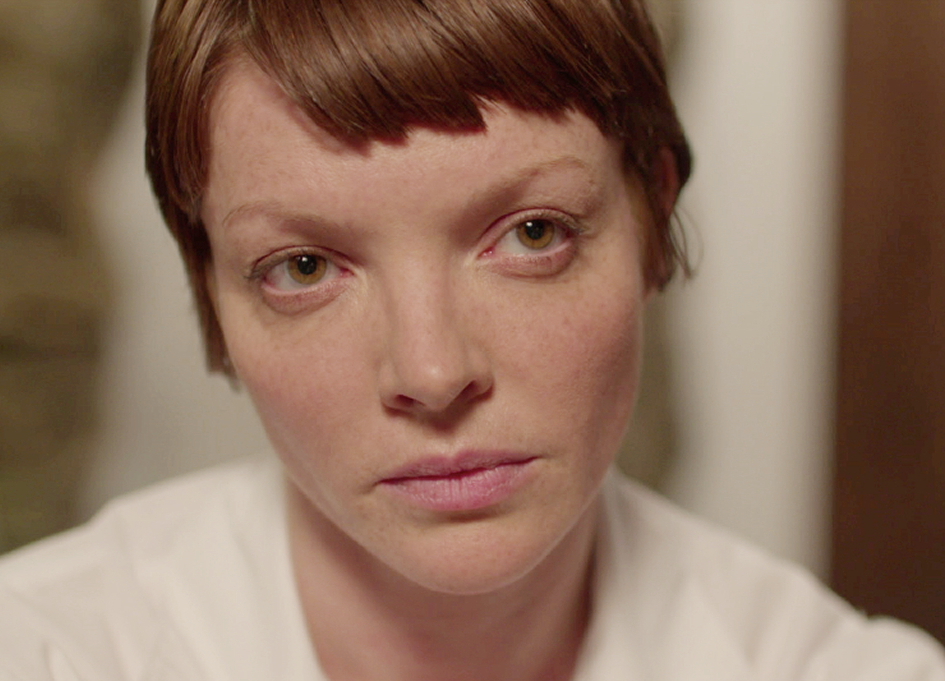I had the chance to screen, twice, Matthew Wilder's prophetic, upcoming apocalyptic chamber-drama "Regarding the Case of Joan of Arc," which is set for a fall film festival run.
I will say this, it's humbling, in this day and age of marketed-for-the-masses dribble, to find a film with a cast & crew that puts this much heart and soul into a film. This is what happens when a filmmaker has a clear vision that everyone else believes in, and refuses to adhere to any conventions. This is pure and unaltered art being shown on-screen, with no filters and one which marks Wilder as a major director to watch.
When I first saw the film, in a rough edited version, last year, I was stunned, flabbergasted by the sheer naked bravado of the on-screen result. I quickly wrote to Wilder by email, saying "I need to watch it again."
Wilder, in case you didn't know, is the man that perpetrated on us the visceral and damn-near chaotic brilliance of 2016's Paul Schrader-directed "Dog Eat Dog."
His latest film, this time as writer and director, is an adaptation of Joan of Arc set in a post-apocalyptic era which feels like just a short distance away. In "Regarding the Case of Joan of Arc," Joan is a virgin, terrorist, martyr, whatever you want to call her, that has disdain for the "decadent urban sensibility" that has invaded her America. She's an alt-right American Christian that says she could hear the voice of God luring her to attack federal buildings. After a military tribunal gets orders to send Joan down the green mile, the resistance, her deplorables, only grow stronger.
The film is so dense in thematic language that multiple viewings are rewarded. ”Regarding the Case of Joan of Ark" might be minimalist in form but its themes are gargantuan, as Wilder tries to capture the disillusionment of the current state of affairs.
Joan wants to bring back Christianity to an America that is divided between science and Jesus. Her pack of followers are the resistance, millions of Americans, surely formed from a Trump presidency that tried to arm America and make them feel their "inner-whiteness" again.
I was first, and foremost, struck by the incredible camerawork and direction. Some of the shots feel effortlessly cinematic. Wilder, and his talented DP Lee Narby, revel in the atmosphere being created. Possibly inspired by Stanley Kubrick's acute eye for obsessively detailed framing, Wilder and Narby use an unusual amount of zoom, some Long tracking shots, what appear to be wide-angle lenses being used, and extremely long takes that continuously lure you into the story. It really is something to behold.
In adapting the classic story to reflect 21st century angst (The deep state, Russia, social justice warriors, the stripping away of free speech and democracy), Wilder keeps his film minimalist throughout, clearly inspired and awed by the angelic face of his Joan, a beautiful Nicole LaLiberte as a driving force. In 1928's "The Passion of Joan of Arc," Carl Theodor Dreyer focused his frames on the magic that came in gazing at Maria Falconetti's penetrating eyes. Wilder does the same here. His camera gazing at LaLiberte's wide-eyed stare, a disturbing character awed by the world to come, her own version of a Christian Utopia finally a possibility. Director and actress manage to shepherd this film into a kind of darkly mystical political realm that is damn-near impossible to describe.
The trailer for the film is posted above. Be on the lookout for this film, hopefully this fall, as it really deserves an audience.






